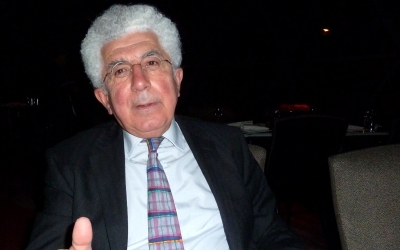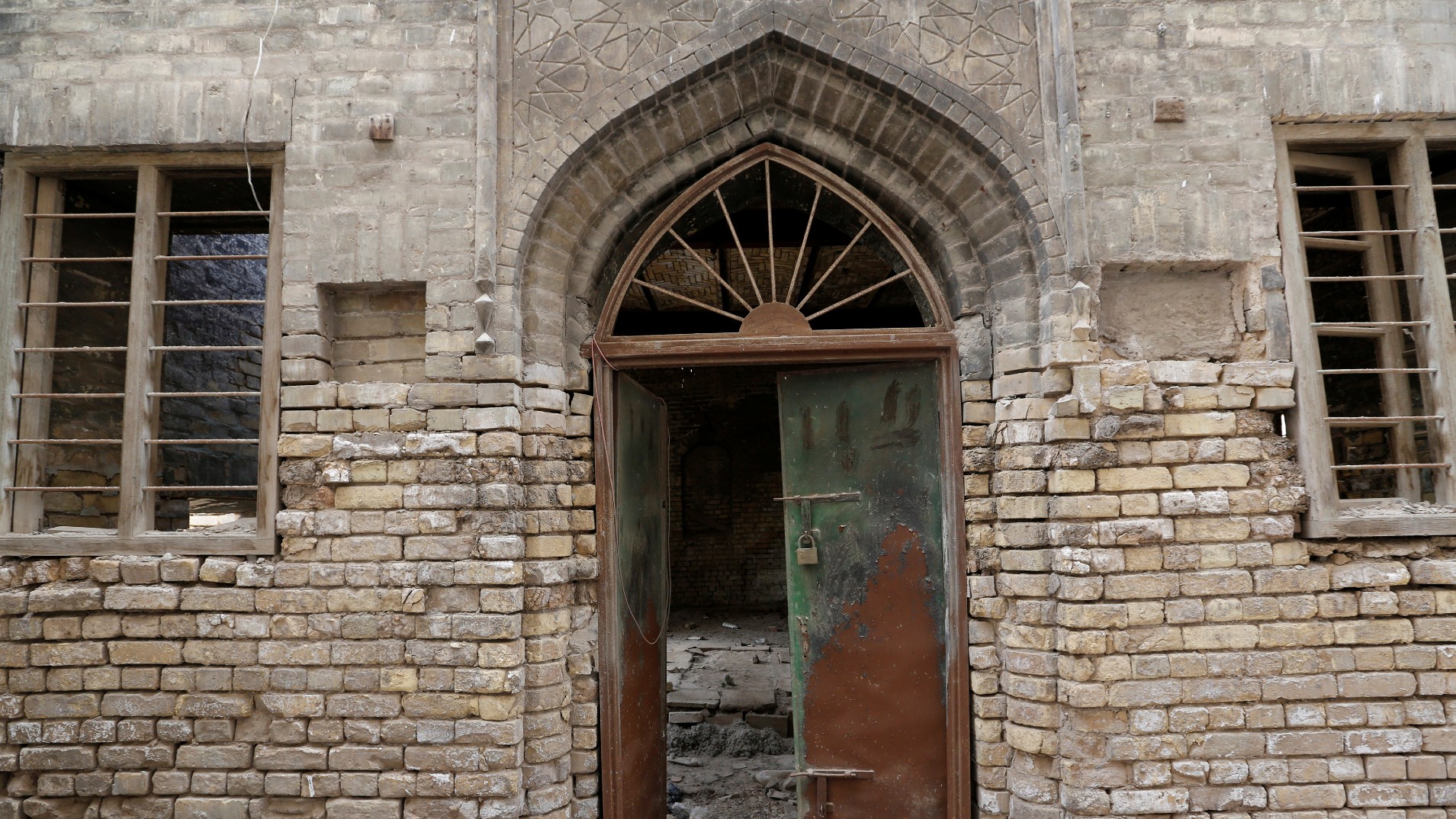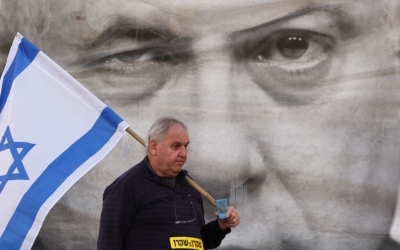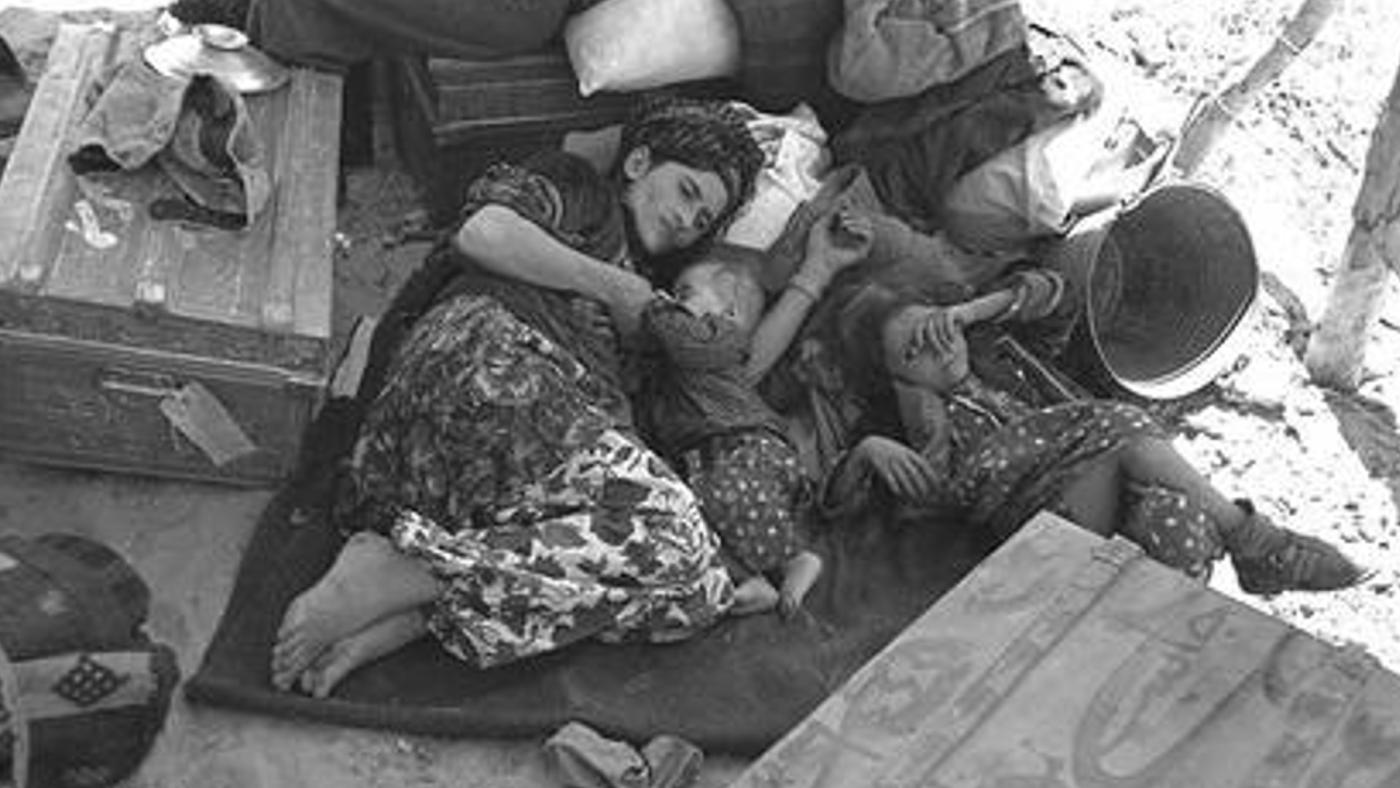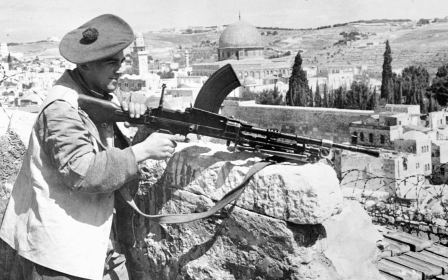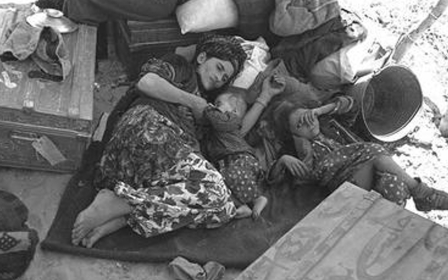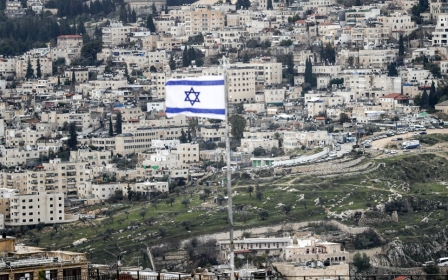Three Worlds: The high price Arab-Jews paid for the Zionist project
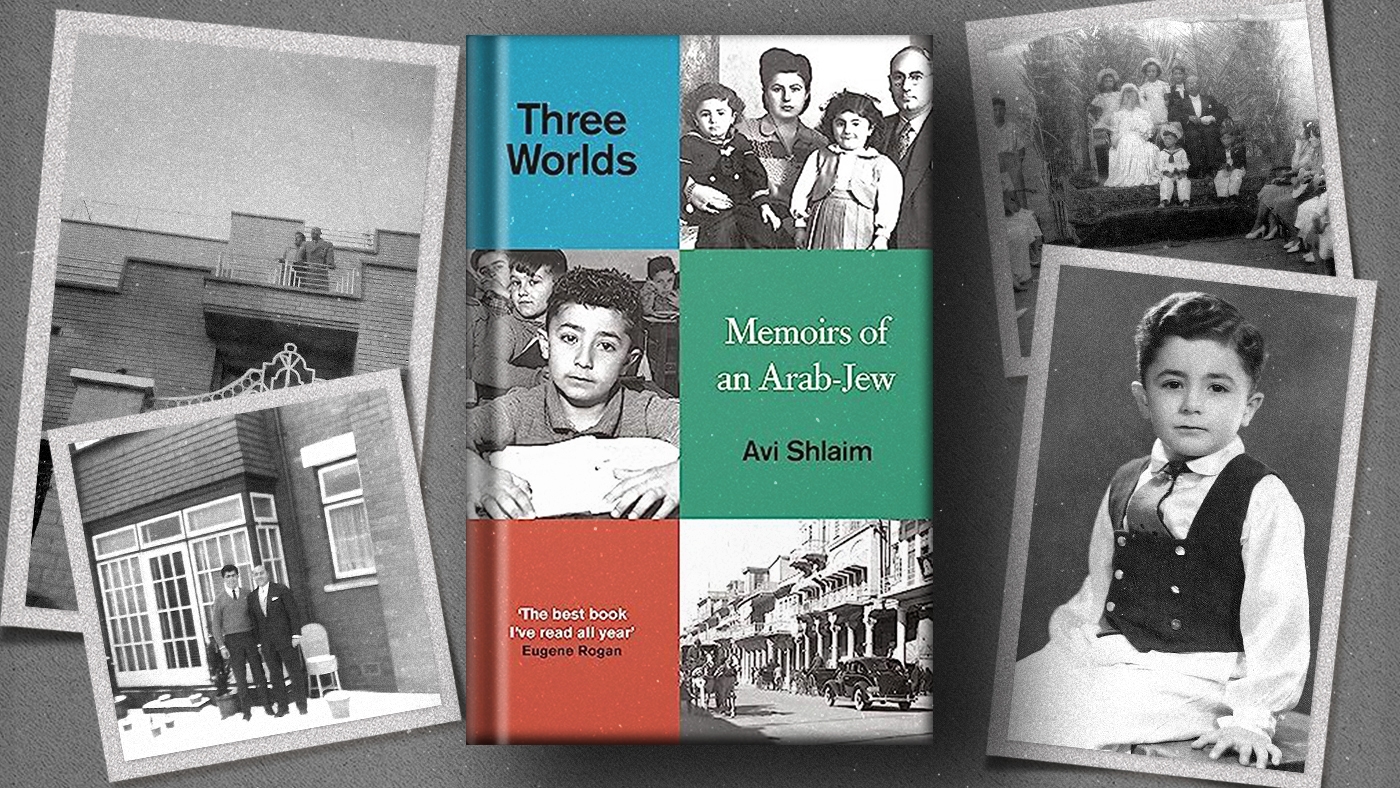
This luminous memoir is rooted in the lost world of the cultured, prosperous shared life of the upper-middle-class families of Sunnis, Shias, Christians and Jews in Baghdad after colonial Britain created Iraq from Ottoman Mesopotamia after the end of the First World War.
The distinguished British academic Avi Shlaim was a small child - “privileged and pampered, happy and carefree” - in that world’s last years. He has lent heavily on his mother’s and grandmothers’ detailed memories of beautiful homes, sumptuous weddings and parties, summer tents by the Tigris for lavish picnics and swimming, and foreign travel, recounted to him over the decades of their transformed lives in Israel from 1950.
Over long years he brought these stories into his historian’s meticulous archival work on the many strands of this large family swept up into the dramatic transformation of the Middle East over the last century.
The book takes us from Shlaim’s adored, privileged, secure little Arab-Jewish boy in Baghdad, through painfully failing primary school years in Israel, with lost identity, lost language, lost father, and lost confidence; an Israeli boy convinced of his inferiority to European Jewish children.
An extraordinarily resourceful mother and the kindness of random strangers led to his intellectual transformation as a lonely teenager in a London Jewish secondary school through very challenging years of hard work. It more than paid off, with a scholarship to Cambridge. It must have felt a charmed new life when this prize was simply deferred so he could do the obligatory two years of Israeli military training.
Back in Israel he found himself unexpectedly happy and respected as a young man successful with an English education and enjoying army life. In Cambridge, he was secure enough in his Israeli identity to cancel a tutorial, for the only time in his life, to take a train to London in the summer term of his first year to go to the embassy and volunteer for the 1967 war. As the war was over in six days he was never called, and Cambridge gave him “the three happiest years of my life”.
Decades later, Shlaim quotes from a note from Sir Arnold Wilson, civil commissioner in Baghdad from 1918 to 1920, to the Colonial Office in London a couple of years after Balfour in 1917, about a discussion with members of the Jewish community there. They remarked that Palestine was a poor country and Jerusalem a bad town to live in.
Compared to Palestine, Mesopotamia was paradise, the garden of Eden. One said: “It is from this country that Adam was driven forth - give us a good government and we will make this country flourish. For us, Mesopotamia is a home, a national home to which the Jews of Bombay and Persia and Turkey will be glad to come.”
European-style antisemitism
For most Iraqi Jews, Zionism was a foreign European ideology which held no appeal. But following the rise to power of the Nazi party in 1933, German influence became strong in Iraq, thanks in part to a very active Arabic-speaking ambassador who bought a newspaper, mixed with influential politicians and journalists, encouraged a paramilitary group modelled on Hitler Youth, and sparked a strain of strident anti-Jewish and anti-imperialist nationalism.
In 1936, Iraq’s civilian government was overthrown and the special protective status of all minorities, including Jews, was curtailed and European-style antisemitism spread.
In 1948, when the UN General Assembly voted for the partition of Palestine into one Arab and one Jewish state, and seven Arab armies were defeated in the united Arab military attempt to stop the plan, Iraq was the only Arab state which refused to sign an armistice agreement with Israel.
In the face of national humiliation at the defeat, the Iraqi government whipped up popular hysteria and official persecution of Jews, purging Jews from government jobs, and making Zionism punishable by death.
The easy Baghdad life went on briefly under a climate of fear for Avi’s family, despite some friends and family members opting to leave illegally. Some left through Iran with the help of the Zionist underground, active since 1942 in the aftermath of the barbaric Farhud mob attack, in which 179 Jews were killed and hundreds wounded in Baghdad.
But an anonymous letter threatening to kidnap his sister and demanding a large sum of ransom money started his mother thinking about leaving Iraq for good. And although the gang responsible was tried and went to prison, she could not shake off the thought they would target the family again when they were released.
“The years 1950-51 marked a cataclysm for Iraqi Jews," Shlaim writes. “In the space of just over a year, nearly the entire community left behind their ancient homeland. My family was among them. Our comfortable lifestyle collapsed around a change I could not even dimly comprehend as a child. Ever since, I have been trying to make sense of what happened and why.”
Baghdad bomb attacks
A critical strand of this exodus lies in the five bomb attacks on Jewish targets in Baghdad between 1950 and 1951. Who planted them has been publicly contested for 75 years, with two Israeli official commissions of inquiry and rival narratives from Iraqi and Israeli camps.
Shlaim’s heavily footnoted research includes long months of study in Israeli government archives
Shlaim has unearthed what he calls partial answers. The goal of four of them was frightening Jews to leave Iraq, giving a much-needed boost to Israel’s slim Jewish numbers.
The first, in April 1950, was the bombing of Dar al-Beyda casino, where an alleged confession made by a member of the xenophobic, pan-Arab, anti-Jewish Istiqlal party was reported in a book by an Iraqi journalist in 2013 and Shlaim records it “tentatively, on the basis of one flimsy piece of evidence”.
The best-known incident is the January 1951 hand grenade attack in the forecourt of the Mas’uda Shemtob synagogue, which killed four Jews and wounded 20 others. This was not political but the work of a Sunni Iraqi criminal, Salish al-Haidari - an act of revenge after Jewish acquaintances reported him to the police after he tried to defraud them.
Before that, bombs went off in the American cultural centre and library, much frequented by Jews, and in a Jewish-owned coffee shop. By March 1951, 105,400 Jews had registered to leave Iraq, giving up their nationality.
Shlaim’s heavily footnoted research includes long months of study in Israeli government archives and firsthand sources who he names, and shows that “three of the five bombings were the work of the Zionist underground”.
One person involved was lawyer Yusuf Ibrahim Basri, a 28-year-old Baghdad Jew recruited and trained by the Mossad, arrested in June 1951, tried and hanged in Baghdad in January 1952. His group’s controller was Max Binnet, an Israeli intelligence officer with the rank of major based in Iran. He was arrested in June 1951.
Two other names of the Iraqi Zionist activist bombers were given to Shlaim, by an inside source in a taped interview in 2017. He later gave Shlaim a page from a police report, printed in the book, which “constitutes undeniable proof of Zionist involvement in the terrorist attacks that helped terminate two and a half millennia of Jewish presence in Babylon”.
‘Cruel Zionism’
That page, and the interview, came from an Iraqi Jew, Yaacov Karkoukli, who escaped to Israel in 1973 after serving several prison sentences for Zionist activities.
By chance, he became a neighbour of Shlaim’s mother in the city of Ramat Gan and the two men met several times, when Karkoukli, then 89 and one of few survivors of his generation, was glad to describe his life choices which gave him a place in a history he in no way regretted.
In 1954, Binnet, by then a lieutenant colonel in the military intelligence branch of the IDF, committed suicide in an Egyptian prison after hearing Iraq had requested his extradition. He was arrested in Egypt as the Israeli leader of a nine-man ring of Egyptian Jews found guilty of planting bombs in Cairo and Alexandria.
"Operation Susannah" was intended to sour relations between Egypt and the West. The result was in fact to sour relations between Egyptian Jews and their compatriots. Israeli Defence Minister Pinhas Lavon was forced to resign, although he denied knowing anything of the affair, which he described as inhuman, adding that “it had all started in Iraq”.
Shlaim reflects: “Looking back, I can still barely grasp the profound effect of the Balfour Declaration’s 67 words and how they upended the life and fortunes of my family decades later.”
He writes of his “50 years of scholarly meandering around the highways and byways of the Arab-Israeli conflict” in which “Operation Susannah” may have started with the bombs in Baghdad in 1950 but “probably had much deeper roots, and is one of the most shocking examples of ‘Cruel Zionism’" he encountered.
In the book’s epilogue, Shlaim writes of how after the Six-Day War and the crest of his Israeli patriotism, disenchantment evolved slowly and painfully
In the book’s epilogue, Shlaim writes of how after the Six-Day War and the crest of his Israeli patriotism, disenchantment evolved slowly and painfully.
He writes: “By delving into the history of my family in Iraq I gained a better understanding of the nature and global impact of Zionism… Zionism was a settler-colonial movement… Looking back it seems to me utterly indisputable that the creation of Israel involved a monumental injustice to the Palestinians. Three-quarters of a million Palestinians, more than half the total, became refugees…
"What the story of my family brought home to me, however, was that there was another category of victims of the Zionist project: the Jews of the Arab lands. Moreover, there was a link between the ways that the Zionist movement treated the Palestinian Arabs and its treatment of the Arab-Jews.”
Reimagining life
Looking to the future, knowing only too well the immense obstacles on the path, Shlaim favours “one democratic state between the River Jordan and the Mediterranean with equal rights for all its citizens regardless of ethnicity or religion”. For him, this is “a noble vision of justice, equality and freedom for all”.
And such a vision, he believes, comes with the attraction of renewing the relevance of the hybrid figure of the Arab-Jew as a bridge.
This memoir of an Arab-Jew, with its vivid picture of an old world of Jews and Arabs in Iraq with “common past, intertwined history and centuries-old heritage of pluralism, religious tolerance, cosmopolitanism and co-existence”, offers readers a chance to reimagine life not ruled by force, fear, deceit and exclusion.
The views expressed in this article belong to the author and do not necessarily reflect the editorial policy of Middle East Eye.
Middle East Eye propose une couverture et une analyse indépendantes et incomparables du Moyen-Orient, de l’Afrique du Nord et d’autres régions du monde. Pour en savoir plus sur la reprise de ce contenu et les frais qui s’appliquent, veuillez remplir ce formulaire [en anglais]. Pour en savoir plus sur MEE, cliquez ici [en anglais].



